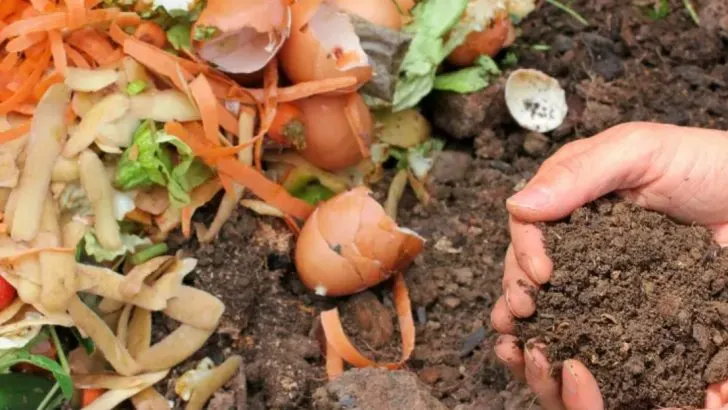Before you toss that banana peel or rinse coffee grounds down the sink, stop. You might be throwing away exactly what your plants are begging for.
Many of the everyday items sitting in your kitchen—leftovers, scraps, or things you’d normally consider waste—are packed with nutrients and minerals that can boost plant growth naturally. And the best part? You don’t need to spend a cent or buy special fertilizers.
From pasta water to crushed eggshells, your kitchen is a goldmine of plant-friendly boosters just waiting to be used the right way. Whether you’re growing herbs on a windowsill, tending to houseplants, or working a full backyard garden, these hacks are quick, effective, and totally beginner-friendly.
In this list, you’ll find 15 surprising items you already have in your kitchen that can help your plants grow faster, stronger, and healthier—without fancy gear or store-bought products.
Let’s turn your kitchen waste into garden gold.
Coffee Grounds
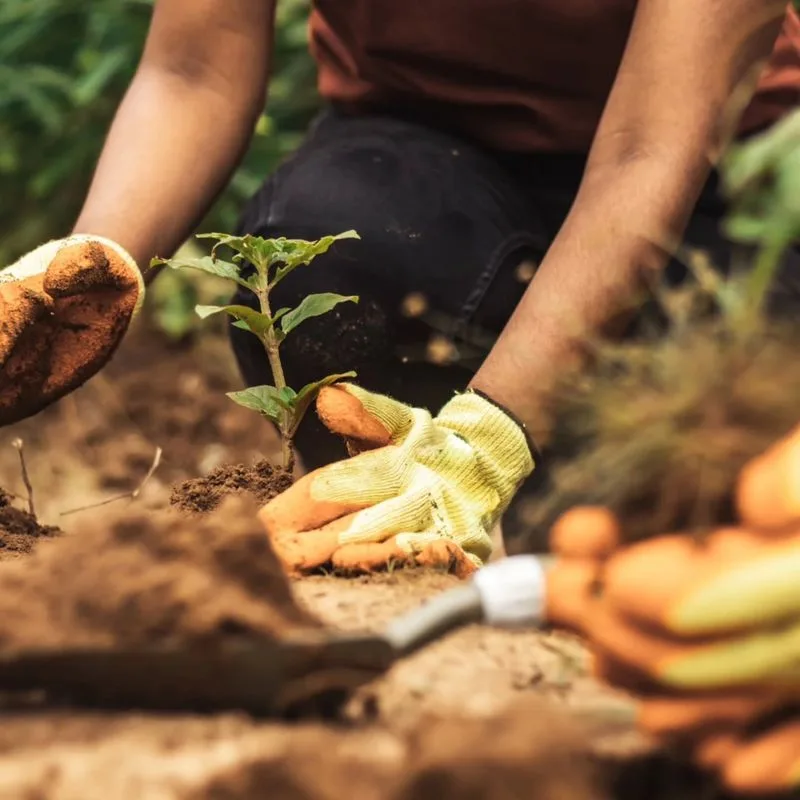
With a little caffeine kick, coffee grounds give your plants a natural boost. They add organic material to the soil, improving drainage and aeration. Slightly acidic, they benefit acid-loving plants like blueberries. A sprinkle on the soil surface or mixed into compost is all it takes. Not just for morning brews, those remnants can make your garden sing. Did you know that coffee grounds can also deter pests? Their texture can keep away slugs and snails. Consider them a versatile addition to your gardening toolkit, transforming waste into a valuable resource.
Eggshells
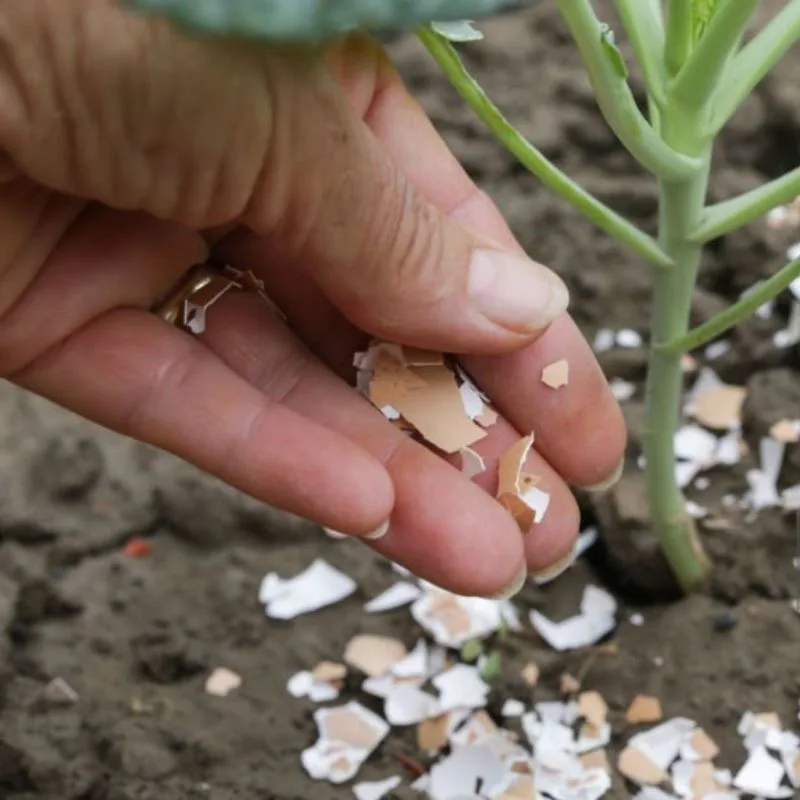
A fragile exterior that packs a punch, eggshells are rich in calcium, vital for plant cell growth. Crushed into small pieces, they enrich the soil, preventing blossom-end rot in tomatoes. Their reflective surface also deters pests, acting as a natural barrier. A simple rinse and crush is all you need. Beyond breakfast, eggshells play a crucial role in plant health. Each shell holds potential, turning kitchen waste into a gardener’s gold. Embrace the cycle of reuse and watch your plants thrive with this calcium-rich boost.
Banana Peels
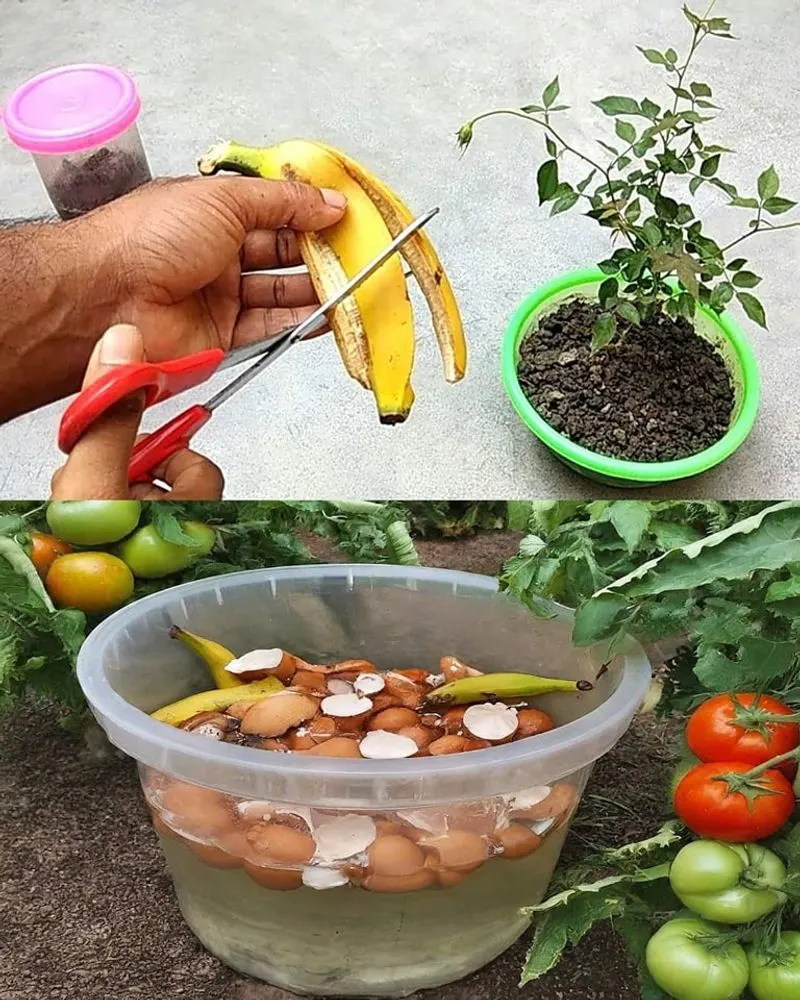
Often discarded without a second thought, banana peels are potassium powerhouses. They promote strong root development and improve plant resilience. Simply bury them near your plants or blend them into a nourishing tea. Who knew snack time leftovers could be so impactful? Their slow decomposition releases nutrients gradually, providing sustained nourishment. Give your plants the strength they need by recycling these humble skins. Embrace the unexpected benefits of banana peels and add a touch of yellow magic to your garden routine.
Tea Leaves
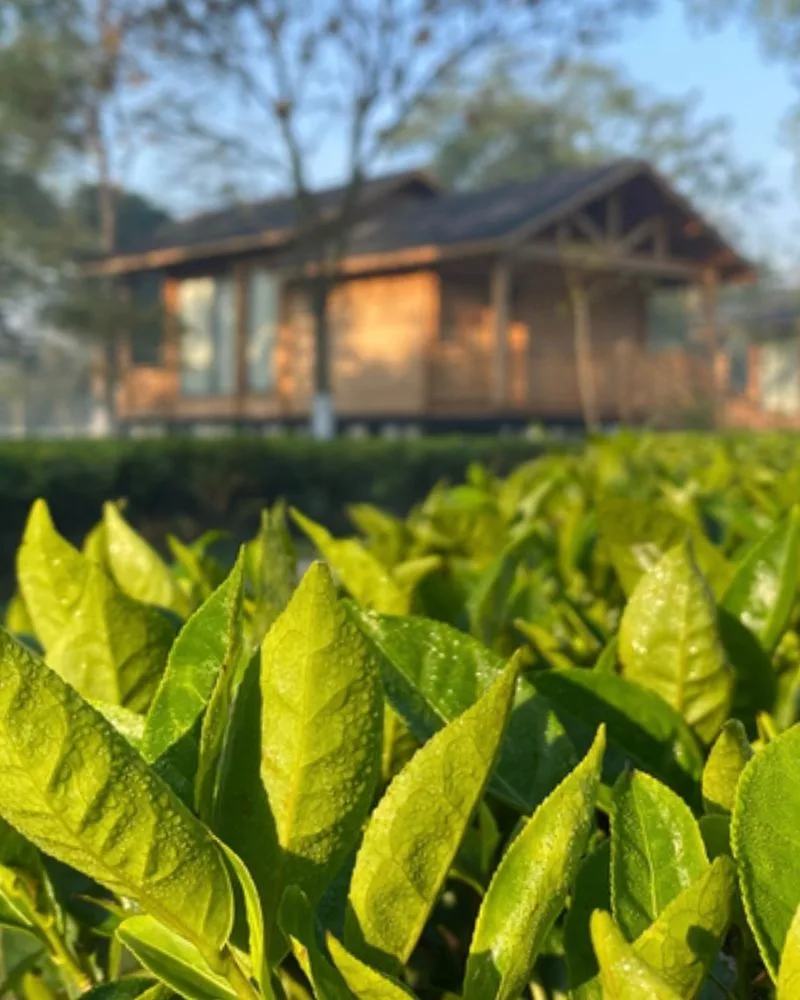
Infusing more than just your cup, used tea leaves enrich the soil with nitrogen, promoting leafy growth. Sprinkle them around acid-loving plants like ferns or roses. Their texture improves soil structure, while tannic acid provides an extra nutritional punch. Who would have thought that a tea break could benefit your greenery? By recycling these leaves, you’re creating a sustainable loop that connects your daily routine with nature. Let each cup bring life beyond the teapot, turning tea time into a moment of growth for your garden.
Onion Skins
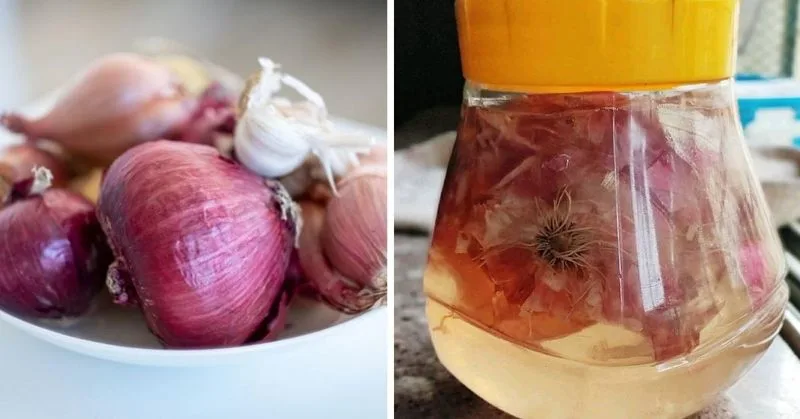
Though they bring tears to your eyes, onion skins are a gardener’s secret weapon. Rich in nutrients, they make an excellent addition to compost. Alternatively, boil them to create a nourishing plant tea. This kitchen oddity has more to offer than meets the eye. Their potent compounds can also deter pests, making them a natural protective layer for your plants. Repurpose these skins and let them work their magic, transforming what was once waste into a thriving garden ally.
Rice Water
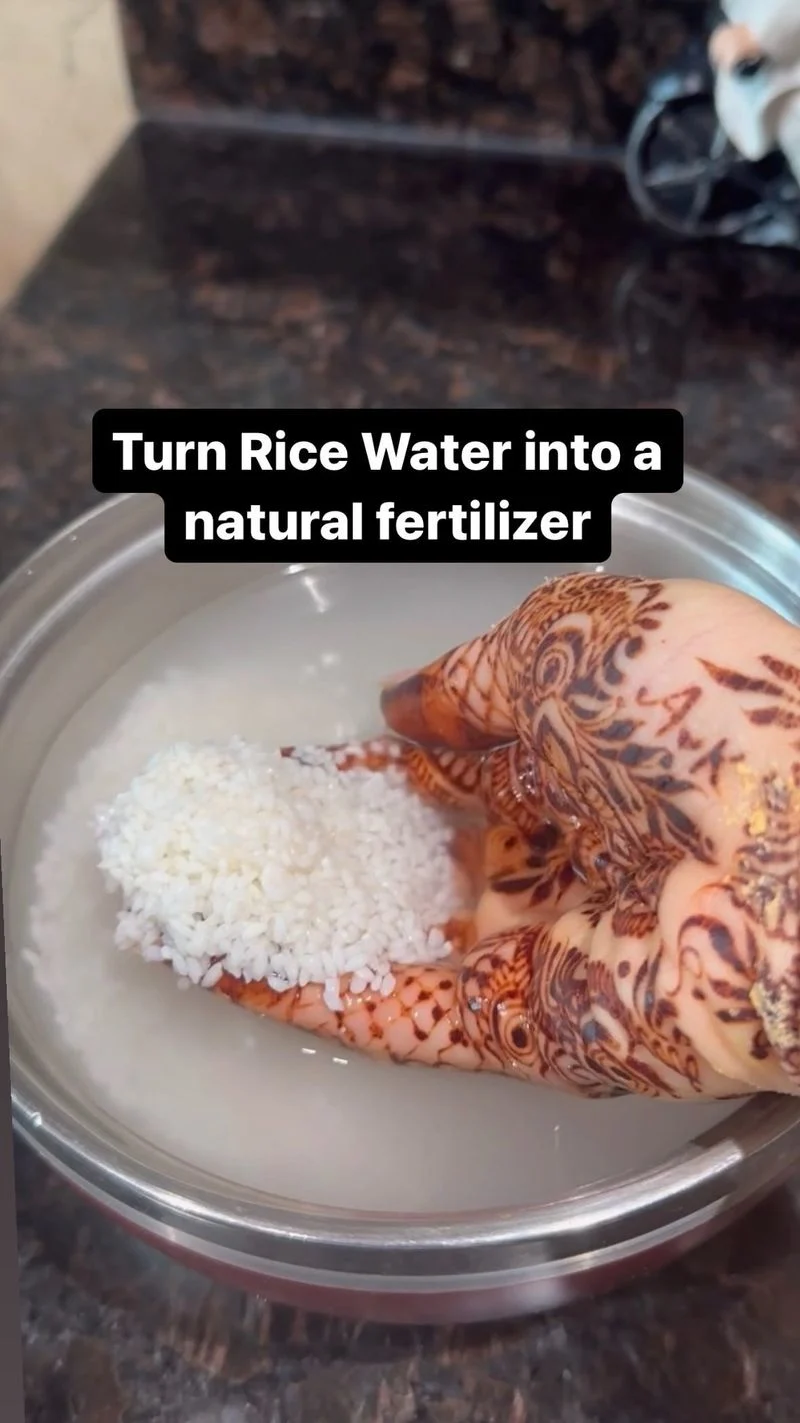
The cloudy water left after rinsing rice is a gentle tonic for plants. Packed with starches and trace minerals, it encourages beneficial soil bacteria. Use it to water your plants, giving them an extra edge. Who knew making dinner could support your garden? This overlooked leftover adds subtle nourishment without overwhelming. By incorporating rice water into your routine, you’re closing the loop between kitchen and garden. This simple act can enhance the vitality of your plants, proving that every drop counts.
Potato Peelings
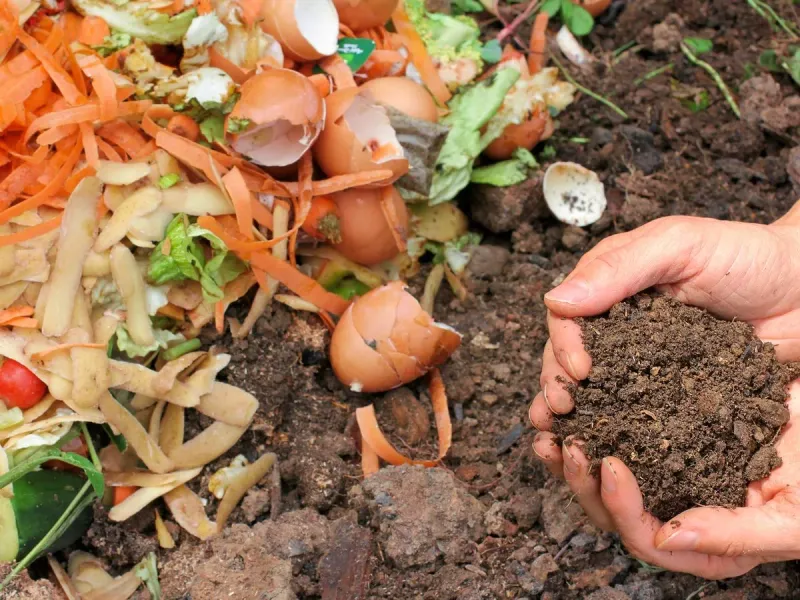
The humble potato peel has more potential than meets the eye. Rich in nutrients, they’re perfect for compost. The peels decompose quickly, providing rapid benefits to your soil. This kitchen staple is more than just prep waste. Potato peelings can also be fermented into a liquid fertilizer. Their nutrient composition helps boost plant vigor and health. Embrace this simple, effective way to enrich your soil and let your garden enjoy the fruits of your kitchen labor.
Citrus Peels
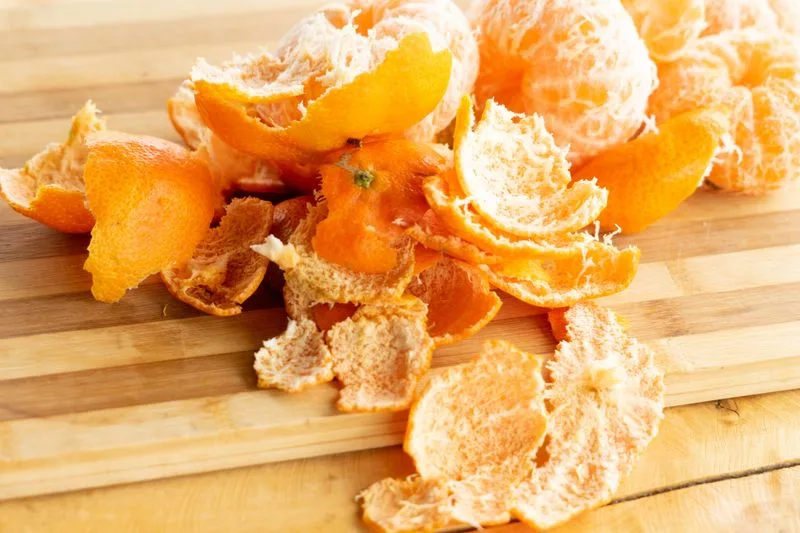
With their zingy aroma, citrus peels offer more than just a refreshing scent. They repel pests like ants and aphids when scattered in the garden. For a fragrant boost, they can be dried and ground into a powder. These vibrant leftovers add an exciting layer to your gardening practices. Beyond pest control, citrus peels can be infused into a nutrient-rich tea. Their natural acidity and essential oils are a boon for certain plants. Let these peels energize your garden in unexpected ways.
Stale Bread
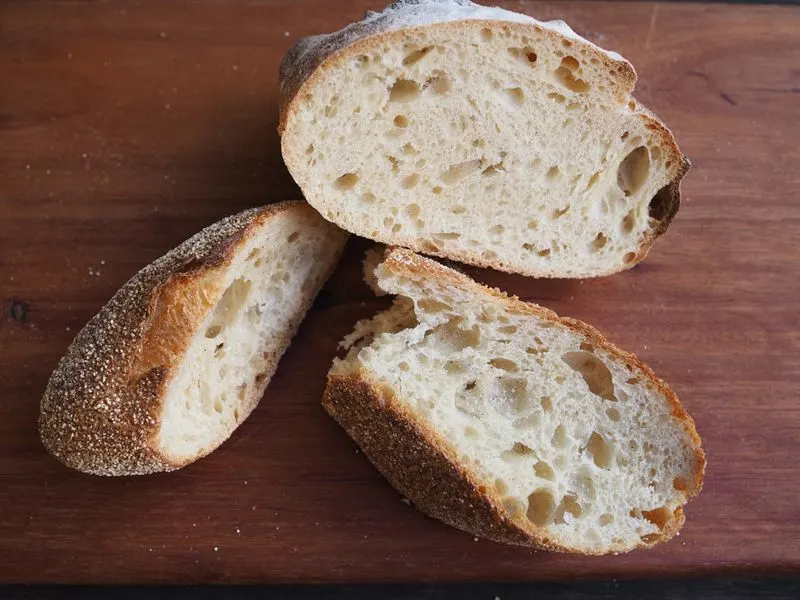
While it may have lost its freshness, stale bread contributes to a rich compost mix. Break it up and let it decompose, enriching the soil with organic matter. It’s a tasty treat for soil microbes. Bread’s journey doesn’t end at the table. By incorporating it into compost, you’re adding a valuable resource. Transform this seemingly useless leftover into a soil booster, letting your plants reap the benefits of every crumb. From kitchen to garden, stale bread finds new purpose.
Pasta Water
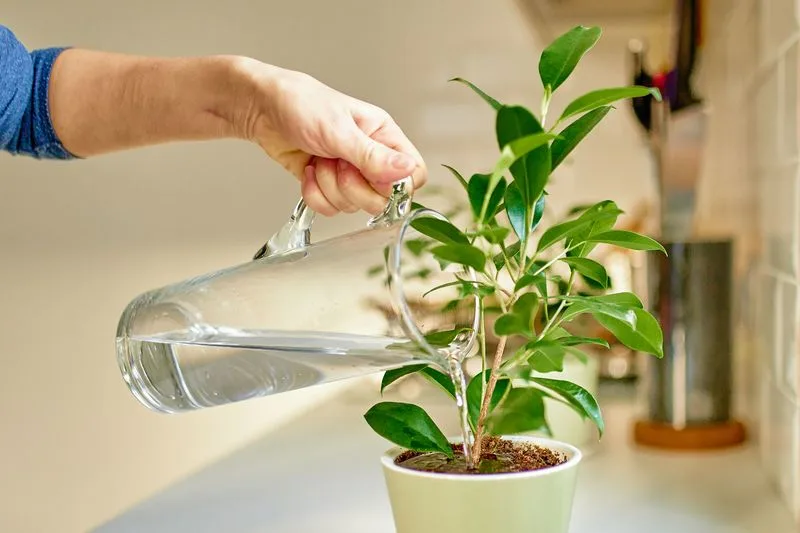
Pasta water might seem like an unlikely garden hero, but its starchy content nourishes plants and enhances soil health. Use it, once cooled, to water your plants, providing them with a gentle nutrient boost. This leftover is more than a cooking byproduct. Incorporating pasta water into your routine aligns kitchen and garden, creating synergy in your eco-friendly practices. Each pour helps fortify your plant’s environment, demonstrating that sustainability starts at home. Let this humble liquid contribute to your garden’s vitality.
Nut Shells
Nut shells, often tossed aside, make excellent mulch material. They help retain moisture and prevent weeds. Crushed and spread on the soil, they’re a crunchy ally in garden maintenance. These durable leftovers find new life among your plants. Their slow decomposition means long-lasting benefits. By repurposing nut shells, you’re giving back to the earth in a sustainable way. They’re a testament to the power of recycling, proving that even the smallest scraps can make a big impact.
Aquarium Water
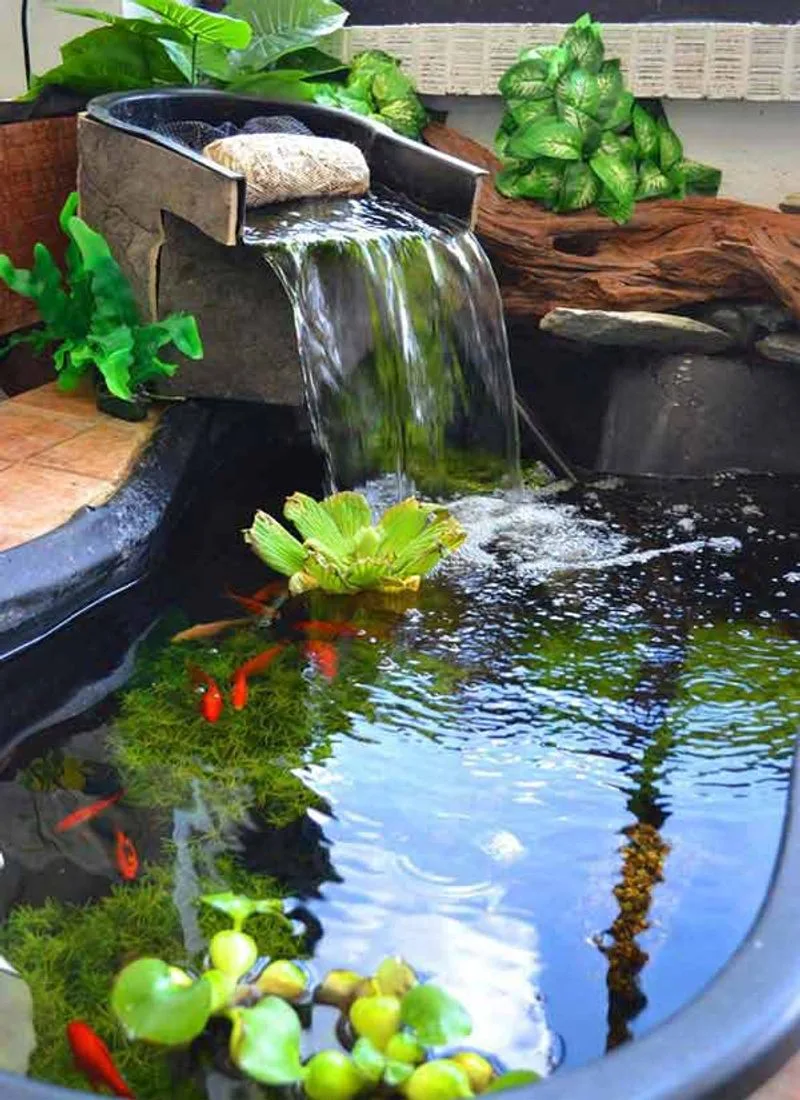
Aquarium water is a goldmine for plant lovers. Filled with fish waste, it’s packed with nitrogen and beneficial bacteria. Use this nutrient-rich water for your plants, and watch them flourish. Beyond the tank, this water supports robust plant growth. By reusing it, you’re connecting aquatic and terrestrial ecosystems in a harmonious loop. Aquarium water nurtures your garden, illustrating the beauty of symbiosis and renewal. Embrace this unique method of hydration and let your plants bask in its rich benefits.
Vegetable Scraps
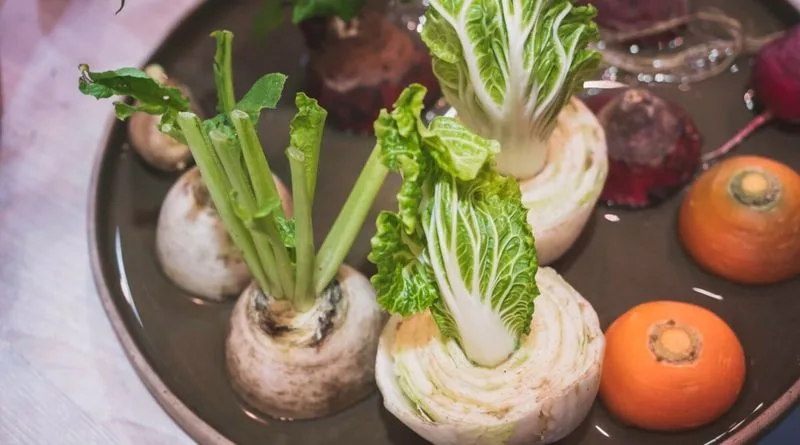
Common kitchen scraps like carrot tops and broccoli stalks, once destined for the bin, are compost gold. They break down into nutrient-rich compost, feeding your garden. This transformation from waste to resource is seamless. Vegetable scraps enrich the soil, fostering a thriving environment for plants. These humble leftovers prove their worth, turning your compost bin into a powerhouse of growth. By composting, you’re participating in a cycle of renewal, helping plants reach their full potential while reducing waste.
Fish Bones
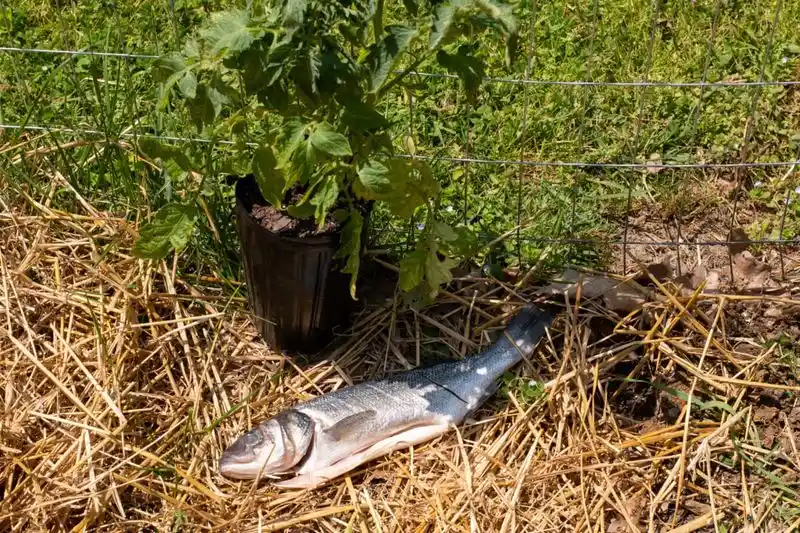
An unexpected ally in the garden, fish bones are a slow-release fertilizer. Rich in phosphorus and calcium, they support strong root systems. Bury them in the soil or add them to compost. This seafood remnant contributes more than you’d expect. By utilizing fish bones, you’re enriching the soil with essential nutrients. Their slow decomposition makes them a long-lasting resource. Embrace this sustainable practice, turning what’s left of dinner into a gift for your garden. Fish bones exemplify resourcefulness in gardening.
Corn Cobs
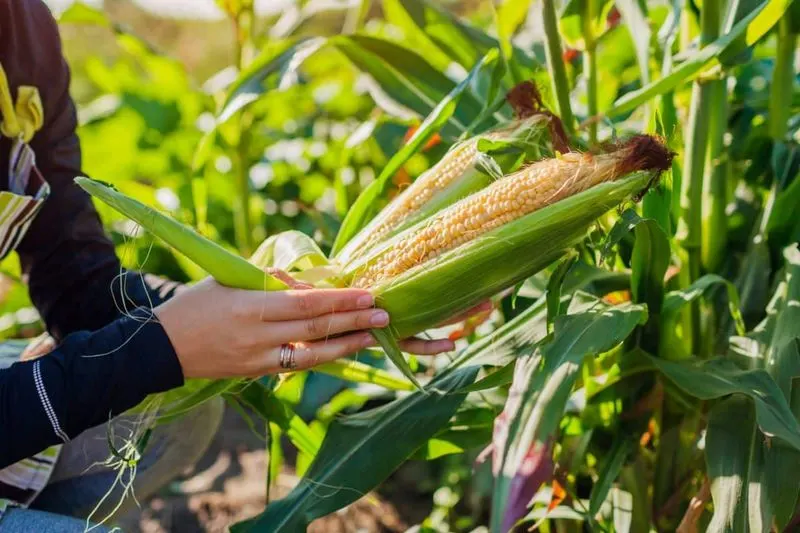
Corn cobs might seem like an unlikely addition to the garden, but they aerate soil and provide carbon. Their structure helps improve drainage and create a welcoming environment for worms. By composting corn cobs, you’re enhancing soil texture. These remnants contribute to a balanced compost mix, turning waste into a valuable asset. Corn cobs’ robust nature makes them a long-term ally in gardening. Let them play a role in your compost strategy, adding both substance and sustainability to your gardening routine.

